Challenge: Methanol synthesis
(Effective use of CO2 by synthesis of basic substances such as methanol)
Idemitsu Kosan Co.,Ltd.
Outline
1. background purpose
1) Since methanol is used as an important basic raw material in various industries, stable demand is expected because it is hardly influenced by the economy of a particular industry.
2) Recover CO2 emitted from refineries and convert CO2 into methanol to reduce CO2 emissions and recycle CO2 as valuable resources.
3) The purpose of this study is to verify the overall operation characteristics of a methanol production plant that integrates the components and demonstrate the supply chain of carbon recycled methanol.
2. Technical goals
1) Development of high efficiency system by optimizing overall heat utilization
Effective heat utilization during the hydrogen production process, CO2 capture process, and methanol synthesis process.
2) Development of technology for treating exhaust gas containing CO2
Establishment of purification process for CO2 containing exhaust gas supplied to CO2 capture device (removal of dust and SOx)
3) Development of stable process operation technology
Operational optimization of methanol production plant according to hydrogen and CO2 supply patterns.
4) Comprehensive evaluation of recycled methanol production process
Verification of operating characteristics, grasping changes in performance criminal and evaluation of maintenance cycle.
Description
1. background
Technology (CCUS) that separates and captures CO2 emitted from refineries, etc., and stores or effectively uses can be a key to reducing CO2 emissions from refineries to zero.
In the `` CCS R & D and Demonstration-Related Business / CCS Large-Scale Demonstration Test in Tomakomai '', injection of separated and captured CO2 into a reservoir under the seabed off Tomakomai was started in April 2016, and CO2 injection was completed in November 2019, due to the achievement of 300,000 tons. The plant was shut down, and R & D and demonstration tests aimed at early commercialization of CCS technology were completed.
Therefore, in the future, technologies related to CCUS aiming to further expand research and development include existing CCS equipment that separates and captures CO2 from gas discharged from refineries and stores it underground, and methanol that is used at CO2 storage points. For carbon recycling technologies that make effective use of CO2, such as the synthesis of key substances, the basic design that takes into account the interaction of the entire plant, the evaluation of the characteristics of each component, the economic evaluation, and the peripheral technology survey will be conducted.
2. Main survey contents (Phase 1-January 2020)
1) Feasibility study of carbon recycling technology using existing CCS equipment
Basic design of plant system equipment and system configuration for synthesizing basic substances such as methanol, utilizing a part of CO2 derived from exhaust gas from factories etc. stored in existing CCS facilities in Tomakomai. Examine the effects of temperature and pressure and recycling ratio on plant performance.
2) Investigation of purification method of raw material gas
Investigate the effects of gas components such as hydrogen and CO2 contained in the gas used as a raw material for basic substances such as methanol on the gas purification method prior to the synthesis of basic substances.
3) Evaluation of catalysts for synthesis of basic substances such as methanol directly from hydrogen and CO2
Evaluate the applicability of the catalyst under pressure and temperature conditions assuming a system for synthesizing basic substances such as methanol as carbon recycling.
4) Economic evaluation of synthesis of basic substances such as methanol
Estimate the plant equipment cost and running cost of the assumed basic substance synthesis system, and examine the economics of manufacturing the basic substance in the plant design in consideration of the interaction between the existing CCS equipment and the basic substance synthesis system such as methanol.
In addition, by conducting related peripheral technology surveys in Japan and overseas, the business prospects for the effective use of CO2 by synthesis of chemical basic substances such as methanol in Tomakomai will be examined.
2. Main demonstration contents (Phase 2-May 2021)
1) Distribution control of CO2 according to the amount of renewable hydrogen or by-product hydrogen supplied, and synthesis of blue methanol and green methanol.
2) Methanol synthesis, purification (distillation) process
3) Acquisition of design optimization data for commercial machines
3. effect
If 850,000 tons /y (about 50% of domestic consumption) of carbon-recycled methanol is produced by this process in 2030, about 1.2 million tons / year of CO2 reduction is expected.
4. Our involvement
Supply of raw material gas and electricity
Partner(s)
METI, NEDO, Japan CCS, MHPS
Supplementary information
Other Innovation Challenges
Carbonate production(New technology development on CO2 fixation and utilization)
Idemitsu Kosan Co.,Ltd.
Cooperation to Global Hydrogen Supply Chain Demonstration Project
Idemitsu Kosan Co.,Ltd.
Our efforts on virtual power plant (VPP) to contribute to the spread of renewable energy
Idemitsu Kosan Co.,Ltd.
Similar Innovation Challenges
Achieving net zero carbon emissions from paint finishing processes
Taikisha Ltd.
Activities for reducing GHG of business operations in Nissin Electric Group
Nissin Electric Co., Ltd.




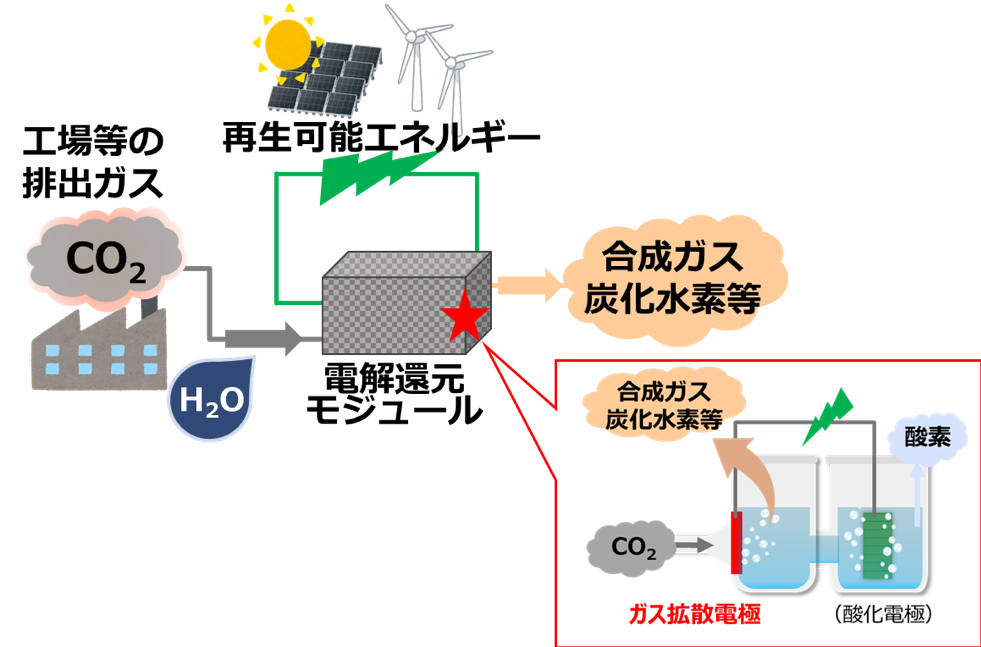
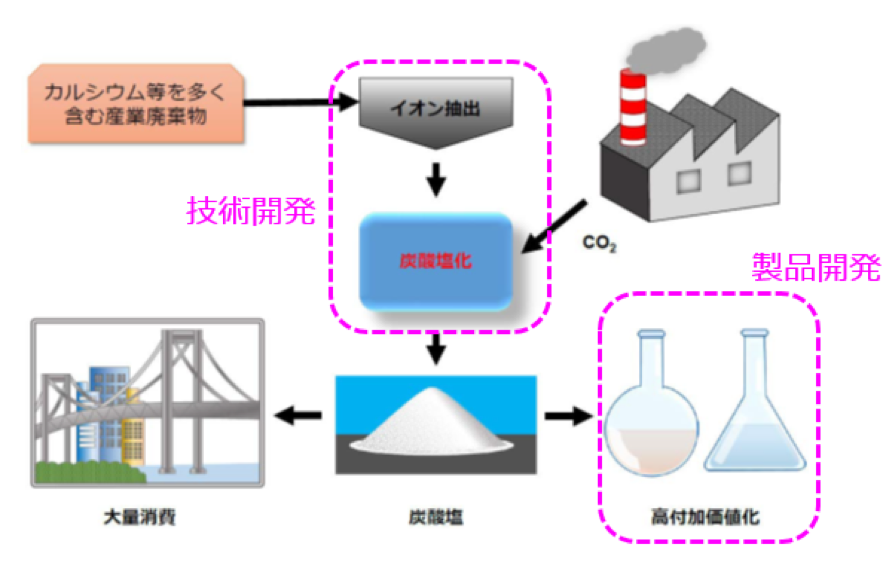
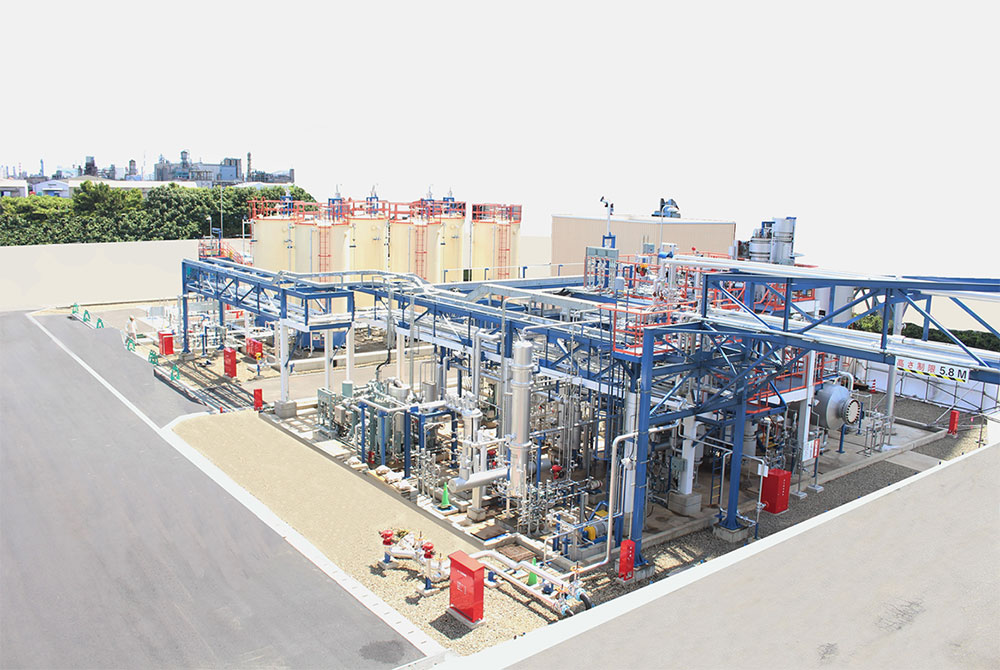


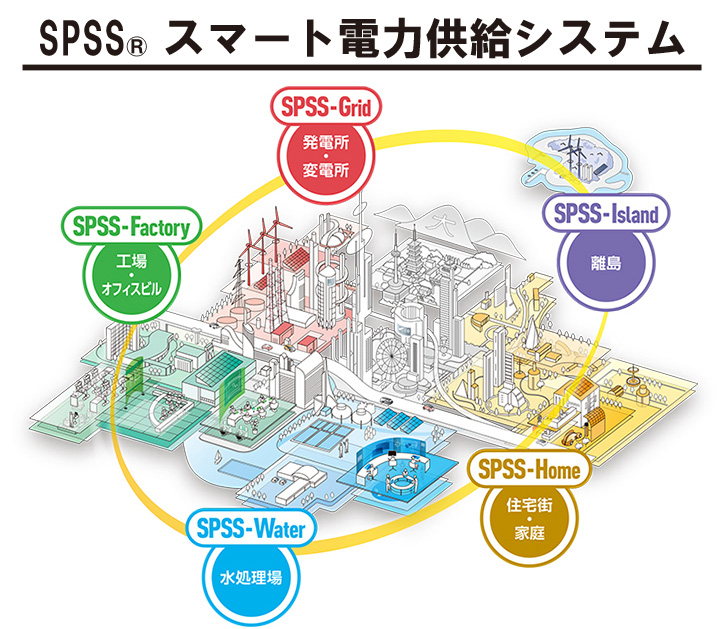
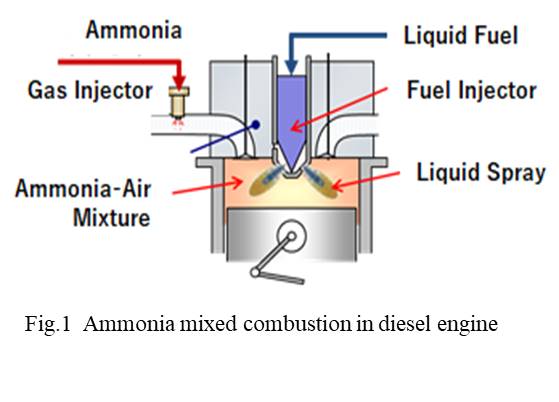
-1人工光合成技術.jpg?id=2&tid=759&imageNumber=1)